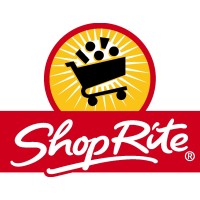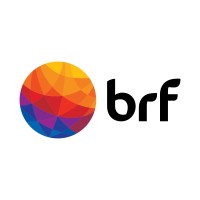
ShopRite
A registered trademark of retailer-owned cooperative Wakefern Food Corp., ShopRite serves more than 6 million customers via more than 250 ShopRite locations throughout NJ, NY, PA, CT, DE & MD



A registered trademark of retailer-owned cooperative Wakefern Food Corp., ShopRite serves more than 6 million customers via more than 250 ShopRite locations throughout NJ, NY, PA, CT, DE & MD

We are one of the leading global producers and exporters of quality food, as we believe it is fundamental to a better life for all people. Not only what we do, but the way we do it, is guided by the purpose of a better life for everyone, from farm to fork. That is why we conduct a sustainable management of our chain, which is vivid, long and complex. In our chain, it is vital to know how to manage interdependence, appreciate knowledge and the development of people and their diversity, ensure efficiency and always innovate. That is how we guarantee our results. We never relinquish Safety, Quality and Integrity to reach our goals and, guided by these fundamental commitments, we maintain operations in more than 127 countries, we are responsible for iconic and beloved brands such as Sadia, Perdigão and Qualy, and own over 35 production plants, 40 distribution plants, in addition to more than 4,000 products and 4.5 million tons of food sold around the globe. Producing food in a way that improves the lives of so many people worldwide is a fascinating challenge. This is our greatest passion.
Security & Compliance Standards Overview












No incidents recorded for ShopRite in 2025.
No incidents recorded for MBRF in 2025.
ShopRite cyber incidents detection timeline including parent company and subsidiaries
MBRF cyber incidents detection timeline including parent company and subsidiaries
Last 3 Security & Risk Events by Company
Angular is a development platform for building mobile and desktop web applications using TypeScript/JavaScript and other languages. Prior to versions 19.2.16, 20.3.14, and 21.0.1, there is a XSRF token leakage via protocol-relative URLs in angular HTTP clients. The vulnerability is a Credential Leak by App Logic that leads to the unauthorized disclosure of the Cross-Site Request Forgery (XSRF) token to an attacker-controlled domain. Angular's HttpClient has a built-in XSRF protection mechanism that works by checking if a request URL starts with a protocol (http:// or https://) to determine if it is cross-origin. If the URL starts with protocol-relative URL (//), it is incorrectly treated as a same-origin request, and the XSRF token is automatically added to the X-XSRF-TOKEN header. This issue has been patched in versions 19.2.16, 20.3.14, and 21.0.1. A workaround for this issue involves avoiding using protocol-relative URLs (URLs starting with //) in HttpClient requests. All backend communication URLs should be hardcoded as relative paths (starting with a single /) or fully qualified, trusted absolute URLs.
Forge (also called `node-forge`) is a native implementation of Transport Layer Security in JavaScript. An Uncontrolled Recursion vulnerability in node-forge versions 1.3.1 and below enables remote, unauthenticated attackers to craft deep ASN.1 structures that trigger unbounded recursive parsing. This leads to a Denial-of-Service (DoS) via stack exhaustion when parsing untrusted DER inputs. This issue has been patched in version 1.3.2.
Forge (also called `node-forge`) is a native implementation of Transport Layer Security in JavaScript. An Integer Overflow vulnerability in node-forge versions 1.3.1 and below enables remote, unauthenticated attackers to craft ASN.1 structures containing OIDs with oversized arcs. These arcs may be decoded as smaller, trusted OIDs due to 32-bit bitwise truncation, enabling the bypass of downstream OID-based security decisions. This issue has been patched in version 1.3.2.
Suricata is a network IDS, IPS and NSM engine developed by the OISF (Open Information Security Foundation) and the Suricata community. Prior to versions 7.0.13 and 8.0.2, working with large buffers in Lua scripts can lead to a stack overflow. Users of Lua rules and output scripts may be affected when working with large buffers. This includes a rule passing a large buffer to a Lua script. This issue has been patched in versions 7.0.13 and 8.0.2. A workaround for this issue involves disabling Lua rules and output scripts, or making sure limits, such as stream.depth.reassembly and HTTP response body limits (response-body-limit), are set to less than half the stack size.
Suricata is a network IDS, IPS and NSM engine developed by the OISF (Open Information Security Foundation) and the Suricata community. In versions from 8.0.0 to before 8.0.2, a NULL dereference can occur when the entropy keyword is used in conjunction with base64_data. This issue has been patched in version 8.0.2. A workaround involves disabling rules that use entropy in conjunction with base64_data.